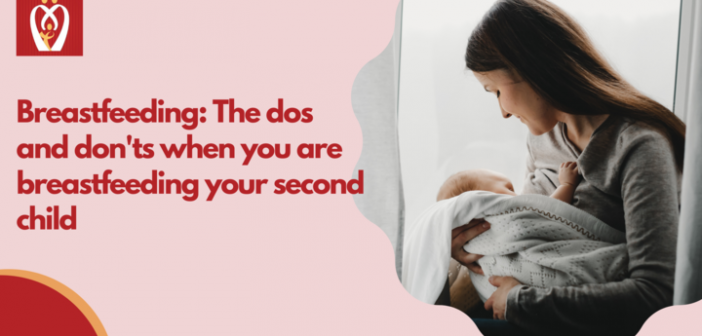When you become a mother, breastfeeding kids is intended to be an automatic part of your life. This may be a period of considerable anguish and frustration, yet, for many women when it comes to breastfeeding kids, recent research reveals that the old adage “If at first, you don’t succeed, try, try again” may be completely on track.
Because they fear they won’t be able to provide their baby with enough milk, many new mums stop breastfeeding kids after the first six weeks. However, new research shows that women with low milk production with their first child have a much better chance of providing their second child with all the breast milk they desire.
Here are a few dos and don’ts for you to keep in mind while breastfeeding kids.
Do’s
- As soon as your baby is delivered, begin nursing him or her.
- A woman’s first 2-3 days of
- are known as the “colostrum” days. Even though the supply is limited, the food it contains is rich in nutrients, provides protection, and is more than enough for a newborn.
- After every two hours, feed your baby. The breast milk flow may seem to be sluggish or entirely obstructed, but don’t give up hope.
- In the same bed as you, your kid should always be with you at all times. These are the first steps in the process of “bedding in”.
- Breastfeed your infant till he or she is six months old. This is known as exclusively breastfeeding.
- Breastfeeding kids should be done after a warm bath as it helps in the flow of the milk.
- When you need to breastfeed your child in public, ask for privacy.
- When it comes to breastfeeding kids, be on time. Don’t be late. Even if your kid isn’t whining, you should still feed him/her on time, no matter what. Creating a meal schedule is quite beneficial over the long term. Crying is the only simple way to tell whether a baby is hungry.
- Before breastfeeding kids, make sure the diaper is changed. Newborns are more likely to eat if they are wearing a clean and dry diaper, according to research.
- Your baby’s mouth should be filled with the nipple and the region surrounding the nipple, known as the areola. Milk production might be accelerated when your baby’s tongue moves across the areola.
- If you simply put the nipple in his or her mouth, it will get inflamed and begin to bleed. It’s important to remember that breastfeeding kids aren’t meant to cause you any pain or discomfort except for the first few weeks when you’re learning the ropes of it.
- Maintain a tidy personal space. Before and after each breastfeeding session, wash your hands and clean the breast area with a moist towel. Your baby’s health problems can be the result of your own negligence.
- Sterilisation isn’t only for breastfeeding mums who use a breast pump and breast shields that need to be disinfected after every use; it’s also important for breastfeeding mothers who nurse.
- Be sure to stay hydrated by drinking plenty of water. Make sure you consume a glass of water, juice, or any other good hydrating beverage before you sit down with your infant. Preparation for breastfeeding is said to be enhanced by the consumption of water or juice just before feeding.
Don’ts
- No matter how difficult it is, don’t give up on nursing your infant. Give yourself and your kid some time to get to know one other. For both of you, nursing is a whole new experience.
- If you have sore nipples, you should not ignore them. In the meanwhile, go to your GP and enquire about the best medication for your nipples.
- Be careful not to start breastfeeding kids if you are in a bad mood. It’s one of the most often overlooked pieces of advise. The state of mind that you’re in has a significant impact on this process. Even your baby can tell when you’re down in the dumps, and your milk supply will suffer as a result.
- Before the first breastfeeding, do not offer your baby glucose, jaggery, sugar, plain water, or honey.
- If your child is teething, do not give them gripe water, balkadu, glucose water, or tonics.
The no. 1 pregnancy supplement brand in the UK – Pregnacare, brings you breastfeeding tablets that every mum should get! Carefully formulated with nutrients like vitamins, iron, iodine and omega-3, this tablet not only produces nutritious breast milk but also maintains health during the postnatal period.
Being well-educated and seeking out expert assistance when you want it are both crucial when it comes to breastfeeding!







